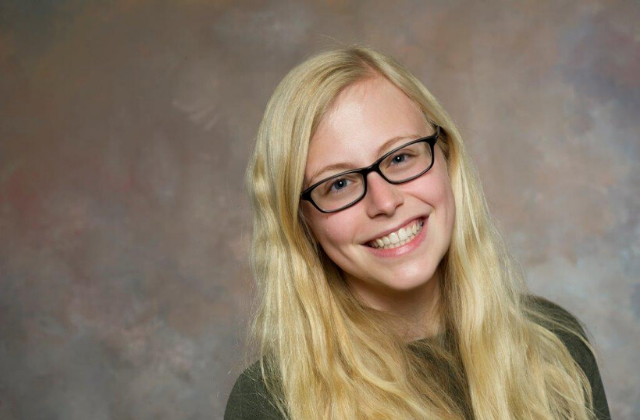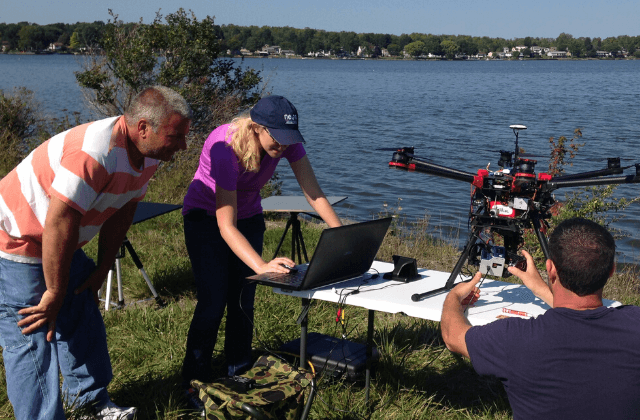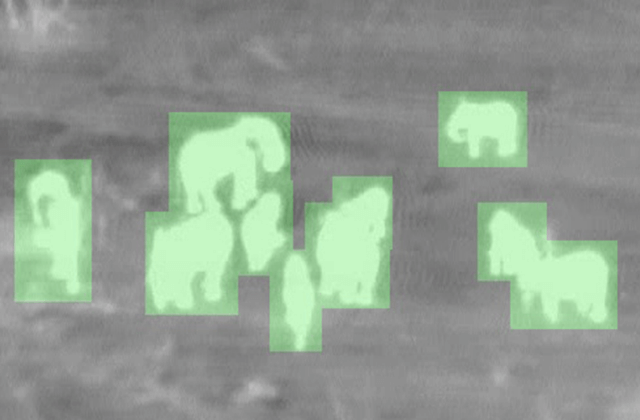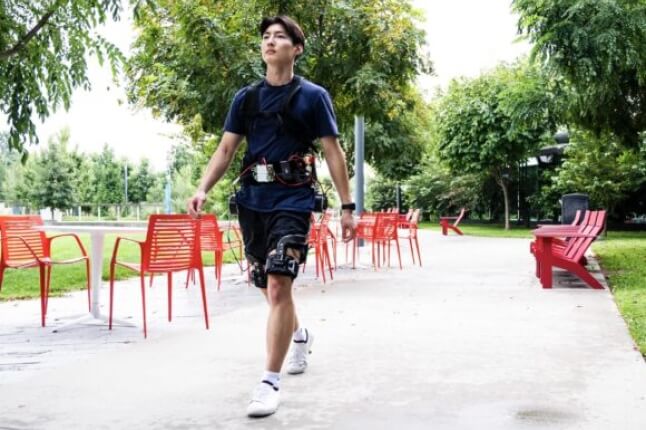News
If it hadn’t been for a summer internship, Elizabeth Bondi probably wouldn’t be where she is now—working toward her Ph.D. in computer science at the Harvard John A. Paulson School of Engineering and Applied Sciences.
After her junior year in high school, Bondi spent a month designing and conducting eye-tracking experiments alongside a local college professor.
“It really got me hooked into this whole idea of research, and pursuing math and science in general,” she said. “I loved the idea of trying to answer some question and solve some problem and be creative about different ways of proposing those solutions. I was especially interested in doing research that would benefit society.”
Now, she’s working to pay it forward by launching a program designed to introduce high school students to artificial intelligence and academic research. Bondi has organized Try AI, an outreach event that will be held in conjunction with the Association for the Advancement of Artificial Intelligence conference in New York City on February 8.
The half-day event with a focus on AI for good pairs local high school students with leading AI researchers. Mentors and mentees will be matched based on their areas of interests and spend a few hours working together to brainstorm potential solutions for a challenge faced by society. Groups will then present their proposed solutions.
The event will conclude with a panel of professors and graduate students who discuss topics like applying for college, career choices, and finding research opportunities as an undergraduate.
Bondi works with a student during the STEAM It Up outreach event held in Cambridge in October. (Photo by Kathryn Hollar)
“I think it is really important for students to get an idea of what people do if they go down this path,” Bondi said. “It is great to encourage people to consider STEM, but I think if you don’t see the career path at the end of the school tunnel, it is hard to stay motivated or even make that career choice in the first place. Hopefully, by bringing everyone together, we can create communities that will support students as they go through this.”
Support from mentors has played a vital role in Bondi’s academic journey.
The connections she made during that summer program inspired her to major in imaging science and return to the department where she had interned. She continued to conduct research as an undergraduate, focusing on historical document imaging to preserve valuable records for the future. Bondi also studied remote sensing and its applications in disaster recovery.
Bondi works on her senior project while an undergraduate at the Rochester Institute of Technology. She used unmanned aerial vehicles for precision agricultural work. (Photo courtesy of Elizabeth Bondi)
Her college mentors helped her pick graduate schools, and she wouldn’t have landed at SEAS without their help.
Now in the lab of Milind Tambe, Gordon McKay Professor of Computer Science, Bondi focuses on applying artificial intelligence to aid wildlife conservation efforts.
Working with a group in South Africa, she is deploying AI to help park rangers detect people and animals that appear in footage recorded by conservation drones. Currently, rangers must watch hundreds of hours of thermal imaging footage to identify animals and poachers. AI can streamline the process by rapidly locating potential hot spots in the film, which could give rangers more time to intervene and stop poaching before it occurs.
But the computer vision software must overcome many of the same challenges faced by human eyes.
“Seeing anything in those videos is difficult, especially humans and animals, because it is pretty much just a gray scale image and you only have one channel, versus what you would see with your cell phone camera,” Bondi said. “And it is looking for heat, so people and animals are brighter, but it turns out a lot of other things can be warm, as well, especially when it is warm outside. So you can get a lot of vegetation that looks like a person.”
Artificial intelligence could help park rangers more effectively and efficiently identify animals and humans in footage from conservation drones. (Image courtesy of Elizabeth Bondi)
While the skills, knowledge, and intuition park rangers possess are essential for conservation efforts, AI can help rangers apply their limited resources most effectively, Bondi said.
She is also working to build a game theory model of poaching activities to help determine likely poaching hot spots, enabling officials to deploy conservation drones and rangers in areas that give them the best chance to prevent poaching.
The work is especially exciting for Bondi because it is uncharted territory for AI.
“We are trying to make it easier for the people who are using these tools already,” she said. “AI can help these park rangers by simply sending an alert that says, ‘maybe check this area out.’ Even if it is not 100 percent correct, it could help ease their burden.”
For Bondi, the opportunity to make an impact in the world of wildlife conservation is gratifying. It hearkens back to the reasons she decided to pursue research in the first place, and builds off the work she’s done developing Try AI.
And she still relies on mentors, during her daily research activities and when she considers her future career path.
“Just the opportunity to continue to do this kind of mentorship is something that I am very passionate about, and it draws me towards academia,” she said. “Thinking about having students that I can help guide toward their next phase of life is very exciting.”
Topics: AI / Machine Learning, Computer Science, Diversity / Inclusion, K-12
Cutting-edge science delivered direct to your inbox.
Join the Harvard SEAS mailing list.






